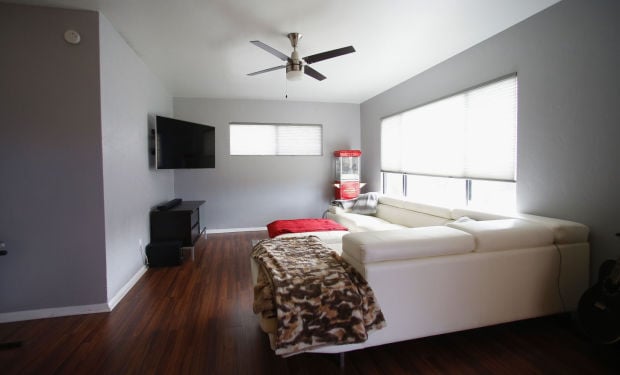Arizona lawmakers must revisit the 2016 law in which they stripped cities of their authority to regulate vacation rentals, Gov. Katie Hobbs says.
The lack of affordable rentals for residents in cities like Sedona is too urgent not to act on, she said in an interview about legislative priorities.
Asked whether communities should be able to outlaw vacation rentals entirely, Hobbs responded, “I don’t have an answer for that.”
The 2016 measure was sold to lawmakers as allowing individuals to rent out a spare room to make a bit of extra cash. That concept is how Airbnb got its name, the idea being an air mattress set up for a guest.
But the reality turned out to be quite different.
In some communities, homes and apartments in entire areas have been bought up by investors to be converted into these short-term rentals, drying up the availability of housing for local residents.
Facing a barrage of complaints, lawmakers previously agreed to let cities have some power to require owners to register and give control over noise and other violations.
But efforts to go farther — such as limiting the number of short-term rentals in any neighborhood — have fallen flat.
“If you go across the state, there’s different issues, that short-term rentals affect different communities in different ways,’’ Hobbs said. “I think that cities should be able to regulate them in the way that best works for them.’’
That means rolling back state-imposed restrictions, she said.
What that can mean, Hobbs said, is allowing some limits where appropriate. Exhibit No. 1, for her, is Sedona, where estimates are that close to one out of every six housing units is a short-term rental, far higher than in any other Arizona community.
“It’s affecting the ability for workforce housing,’’ Hobbs said. “It’s a tourism economy. And a lot of people that work in that economy can’t live there.’’
The Colorado ski town of Steamboat Springs is part of a wave of vacation towns across the country facing a housing crisis and grappling with how to regulate the industry they point to as a culprit: Short-term rentals. Such rentals have become increasingly popular for second homeowners eager to offset the cost of their vacation homes and turn a profit while away. But some say they have squeezed small towns' limited housing supply and sent rents skyrocketing for full-time residents.





